12:13 PM 11/26/2023 - How did Putin turn from Netanyahu's friend to a Hamas supporter?
Michael Novakhov's favorite articles
At the end of last month, Paris police launched an investigation into the spray painting of Stars of David on Parisian buildings in which Jews live. The police gauged this to be a hate crime, until the arrest of two suspects – Moldavian citizens.
The man Prime Minister Netanyahu described in one of his election campaigns as a friend “in a league of his own”, continues to employ tactics reminiscent of the KGB where he was raised - with the intent of causing chaos and disrupting world order. The endgame is to reinstate Russia to the status he believes the country deserves.
This is what stands behind most of Putin’s actions, and Hamas’s October 7th attack is just one more opportunity to do just that. Putin is yet to condemn the attack. His senior government officials hosted a delegation of Hamas leaders in Moscow and he’s gone as far as comparing Israel’s siege of the Gaza Strip to Germany’s siege of Leningrad that caused the deaths of one million people.
After last month’s storming of the airport in Dagestan capital, Makhachkala by hundreds of people shouting antisemitic slogans and looking for Jews arriving on a flight from Israel, Putin did convene his senior government officials for an extraordinary meeting. In the meeting, he blamed Ukraine and the United States for inciting the local population and expressed his sadness for the women and children of Gaza, making no reference to Hamas’s attack on Israel.
All this illuminates that, like the notion that Hamas wasn’t presently interested in military conflict, the idea that Putin wouldn’t align himself against Israel, has proven misguided. This assumption lay behind Israel being the only Western country not to stand unequivocally behind Ukraine after the Russian invasion, refusing to condemn war crimes committed by Russia, and refraining from joining Western sanctions on Russia.
How did Putin morph from the leader who handed Netanyahu the triumph of repatriating Naama Issachar during an election campaign and coordinating with Israel allowing her to bomb targets in Syria - to clearly choosing Hamas’s side?
How has the Russian leader, who was the first to call U.S. President George W. Bush after the 9/11 attacks, aligned himself with terrorists who have committed unforgivable crimes towards the Jews, despite all agreeing he’s no antisemite?
“The Putin-Netanyahu relationship has been good over the years, because Putin thinks Netanyahu is like him,” B., a Moscow-based journalist asking to remain anonymous for fear of being labeled a foreign agent, said. “This is why Putin has a good relationship with Erdogan. Putin sees a lot of his own traits in these two leaders: A strong leader ruling his country, alone for many years, in some ways isolated due to this protracted rule.
“A further similarity between the leaders is that Putin’s first term of office is in no way similar to his successive terms. Netanyahu’s behavior can also be divided pre and post-2015, when he homed in on controlling the media and further power bases so as to consolidate his own power.“
B. refrains from speaking Putin’s name in full, referring to him by all his initials of his complete name, Vladimir Vladimirovich Putin, “VVP”, or as “PU”, for fear of the conversation being tapped. “It’s not right to make generalizations when talking about Putin, because, for him, everything is personal and specific,” she says. “But for the most part, his most defining trait is that he’s an agent of chaos. The more chaos in the world, the more he believes he’ll benefit. These are historic KGB tactics.”
A current example of planting chaos can be seen at the Russia-Finland border. Six months after Finland joined NATO, to the great displeasure of Russia with whom she shares an 800-mile border, hundreds of undocumented refugees from Iraq, Yemen, and Syria per week started showing up at the open border crossing between the two countries.
Finland is convinced that Russia is sending them in response to Finland’s growing cooperation with the West. Finland has consequently closed some of the border crossings, creating new friction points - to Russia’s great satisfaction.
“Putin enjoys seeing the large-scale demonstrations sweeping European capitals and the United States, as well as what’s going on at the American universities” B. continues. “Ironically, Russia now looks like the safest place for Jews: Following draconian laws passed imposing custodial sentences on anyone going out to demonstrate, there are no demonstrations at all in Russia – neither for nor against Israel.”
300 thousand Jews presently live in Russia and current surveys suggest that antisemitism levels are lower among younger Russians. A survey conducted at the end of October by the Russian Levada Center, concluded that two-thirds of those polled chose neither side in the present war in Gaza and that 20% support the Palestinians (the survey did not differentiate between Hamas and the Palestinians), and 6% support Israel.
“The change in Putin’s behavior should come as no surprise,” says Arkady Mil-Man, Head of the Russia Program at the Institute for National Security Studies and former Israeli Ambassador to Russia. “This is classic KGB. This is where his character took shape. He views the world completely differently from the way we do.“
Mil-man was among the founders of the Israeli embassy in Moscow when official relations between the countries kicked off and served as Israeli ambassador from 1993 to 1995 and again from 2002 to 2006. He is the Israeli with the most experience with Putin. Over the years, they met many times. In his early years at the Kremlin, Putin gave Mil-man special treatment talking to him more than with ambassadors of other countries.
“Putin isn’t antisemitic” Mel-man continues. “That’s why he views Israel as another tool in his toolbox. There was a time when he used to say that Israel’s security is important to Russia because a million former Russian citizens live here. He hasn’t been saying this lately. It would be wrong to say that Putin has a soft spot for Israel. Putin only sees how Israel serves his interests. And as the world redivides into East and West, he classifies Israel as West and his true colors are starting to show. “
Yuli Dubov, a Russian writer and scientist who has been living in London for many years for fear of persecution by Putin, believes that Russia has been playing a “double game” for years. He thinks that Putin is taking Hamas’s side due to the dependency on Iran that his country has developed.
“Until October 7th, Putin felt comfortable sitting on the fence – being Netanyahu’s friend and supporting Israel, while also being on good terms with Hamas,“ he says. ”It’s allowed him to influence both sides. But the game’s over and he has to choose a side. As Russia has become more dependent on Iran during the war in Ukraine, Putin has been forced to choose this axis.“
“When the war in Gaza is over, he’ll realize what he’s done and might try switching sides again. In the meantime, he’ll carry on transferring arms to Hamas and Hezbollah, but will also offer to mediate for the release of hostages. Israel, can’t sit on the fence either for too long regarding the Russia-Ukraine war. It’s okay for a short time, but it becomes more uncomfortable as time goes on“
Dubov also knows Putin well - after having served as right-hand-man to Boris Berezovsky, a Russian oligarch who fled to London following a dispute with Putin and who was found dead in his home in 2013.
Like Mil-man, who explains that “Putin has gone through a complete metamorphosis since 2002." Dubov also believes that the Russian president of today is not the Putin of 20 years ago.
“As Putin’s rule has continued, his sense of self-importance has inflated. Extended rule turns people into monsters and that’s what’s happened. He didn’t used to be a monster, but rather a regular KGB official. He wasn’t the most honest, but he wasn’t a monster. “ Dubov notes that he knows the man believed to be behind the Telegram account claiming that Putin is dead and that a double has been gracing our TV screens for the past few weeks, stressing that this is completely untrue.
Putin was born in St. Petersburg in 1952 to a family of modest means. Two brothers had died before his birth. In 1975, he graduated with a Law degree from the University of Leningrad and was soon recruited into the ranks of the KGB. He later said it had been a childhood dream. In 1985, he made another dream come true when he was sent to Dresden, Germany to mark Germany’s 1945 capitulation to the Allies.
He was awarded a medal of distinction for his collaboration with the German Stasi. With the collapse of the Soviet Union, he returned to Leningrad, not long before the city reverted to its former name of St. Petersburg. Here, his career took a turn.
In 1991, Putin developed a good relationship with the then mayor of Petersburg, Anatoly Sobchak – the first democratically elected mayor who was taking a liberal line. Putin was advanced to the position of his advisor. After Sobchak’s defeat in the following mayoral elections, Putin moved to Moscow where he completed an MA in Economics.
He entrenched himself into the party of then-president, Boris Yeltsin, whose power was waning by then. In 1998, he was appointed head of the FSB that replaced the KGB but, in reality, was its de facto reincarnation. In 1999, he was appointed prime minister on the understanding that this anonymous, grey official would allow other individuals to keep hold of their power. This is how, unintentionally, the undisputed ruler of Russia of twenty years built himself up.
In hindsight we may assess Putin by observing that, even in his early years as the Soviet Union was disintegrating, he was less interested in rebuilding a new Russia and more in money and power. Despite studying Law at university, the culture in which he was raised in Leningrad, more closely resembles that of mafia codes”.
This is how Mil-man reads Putin’s past – a man whose net worth is estimated at $200 billion and is concealed in various hiding places across the globe, including with several oligarchs whose fortunes are regarded as the property of the Russian president.
“Initially, everyone around Putin thought he was a dull, harmless individual who would continue the same policy of connecting with the West and building up a system that looked democratic, but really wasn’t. It would still employ a vast array of supervision and control mechanisms.“
Mil-man explains that in 2004, NATO Secretary General, Anders Fogh Rasmussen visited Russia and Putin said something almost unbelievable to him: ‘I hope that NATO’s expansion will contribute to Europe’s safety.’ But the West and Israel missed a few important points about Putin. “
At the 2007 Munich Security Conference, Putin gave his first anti-American speech. He spoke for the first time about the unipolar world in which the United States is the hegemon while Russia isn’t prominent enough.
Putin claimed that the United States had crossed boundaries and thought she could rule the world alone. Echoes of this argument can be heard in his first reference to October 7th, in which he hardly mentioned Israel directly and claimed that the attack resulted from mistaken Middle East policies of the United States.
Since the Munich Security Conference speech, we can see Putin’s new leadership style – destroying independent media, trampling on personal rights, and assassinating political opponents on his watch. The most prominent of these political opponents was Boris Nemtsov, deputy to former Russian president, Boris Yeltsin.
Nemtsov became one of Putin’s sharpest critics and was murdered in 2015. Before the murder, in 2014 Russia annexed Crimea, an action broadly criticized by the international community, but led to no action taken.
Mil-man explains Russia’s decision to go to war against Ukraine in terms of Putin’s dictatorial style, rather than in terms of a desire to prevent Ukraine from joining NATO – that was not on the agenda at the time anyway. “My take on the invasion of Ukraine is much simpler,” he says.
“Ukraine irritates Putin because the Ukrainians have twice, in 2004 and 2014, brought down regimes set up there in his name. Putin views Ukraine’s desire for regime change turning it into a democracy, as illegitimate.”
“For years, Putin believed that Russia would rule the world alongside the United States as another superpower, but that never happened because Russia was only a pretend superpower,” Mil-man explains. “Economically, she made up just over one percent of world trade, and since the invasion of Ukraine, it’s become clear her nuclear weapons are the only thing that really defines her as a military superpower.”
Russia is ranked in the world’s top ten for GDP, but lags behind in 76th place when it comes to GDP per capita. Furthermore, until Russia’s invasion of Ukraine, the Russian army was regarded as among the strongest in the world, but in the two years since the invasion, Russia is far from achieving her objectives and has lost tens of thousands of soldiers.“
Ukraine is now at the center of Putin’s policies and dictates his actions – including regarding the Israel-Hamas conflict. The regional war in the Middle East seems like the best news Putin could wish for: As long as the world is busy watching Gaza, it’s not following what’s going on in Ukraine and Russia can act relatively quietly.
Furthermore, ever since the United States started transferring additional military aid to Israel, in Russia they’re hoping that the Republican party – whose members were ambivalent about support to Ukraine – would rather focus their resources on Israel.
The decisive position taken by U.S. President, Joe Biden following the Hamas attack, followed by the deployment of American aircraft carriers in the Middle East and Arabian Sea as a deterrent to Iran and Hezbollah, surprised countries across the globe - including the Russian president.
But in doing this, America has drawn clear lines. If the United States positions itself alongside Israel, with all its military power, resources, and influence, it means that Russia must take the other side.
Over the past two years, this perception has strengthened Russia-Iran relations into a kind of alliance of outcasts. The two countries, sanctioned by the West, have formed a strategic alliance. But unlike in the past, when Russia clearly had the military upper hand, the situation is different now.
Russia depends on Iran for the supply of modern weapons. Russia and Iran have a common interest in heating things up in the Middle East to ensure the region remains volatile so as to increase oil prices. In the meantime, oil prices have remained below forecasts at $150 per barrel in the event of escalation.
What will Putin do now? Like many experts on Russia, Mil-man and Dubov believe that Putin will not intervene on the Gaza-Hamas front and will suffice with talk. It’s in Putin’s interests for the war to continue as long as possible. Every now and then, he can throw a match or two into the fire to ignite chaos or signal to China about annexing Taiwan.
Experts estimate that Putin is not interested in World War Three as he understands that Russia will be unable to deal with NATO armies. But time is on his side, and it’s starting to show in the polls: The possible return to the White House of his long-time friend, Donald Trump, whose idea of “sorting out” the world is the stuff of Putin’s dreams.
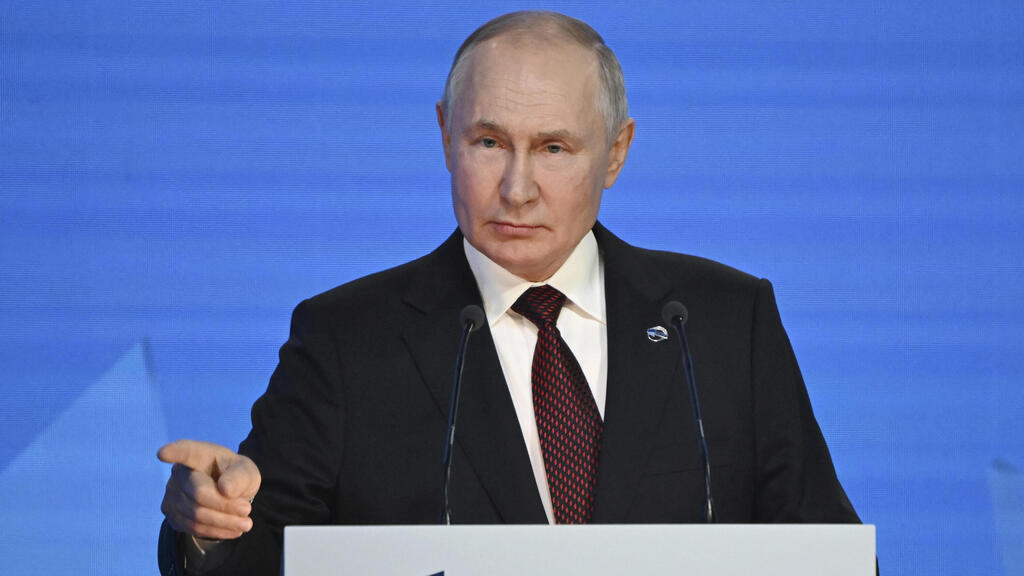
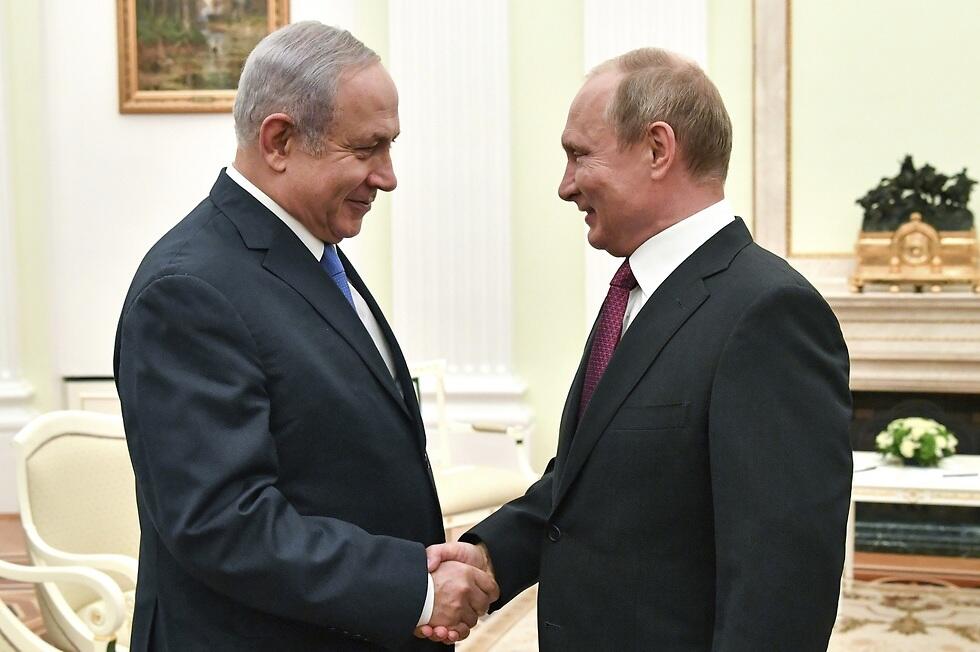
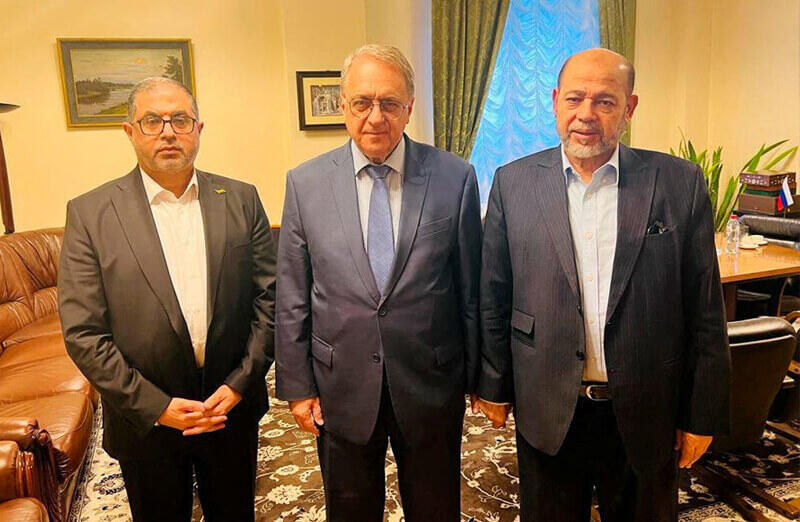
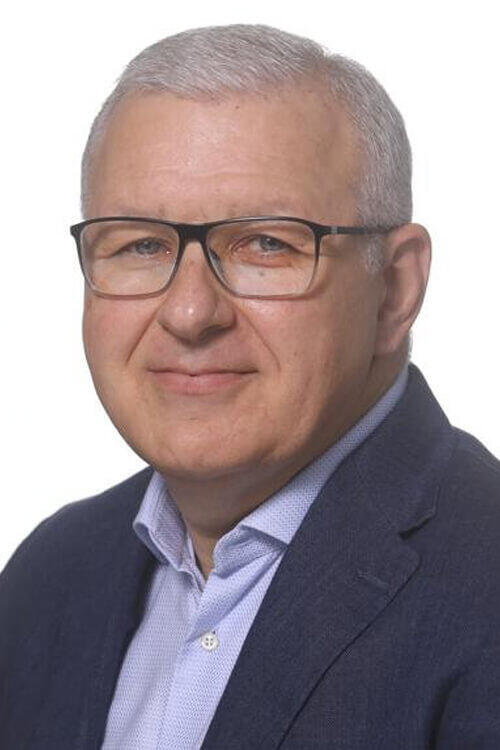
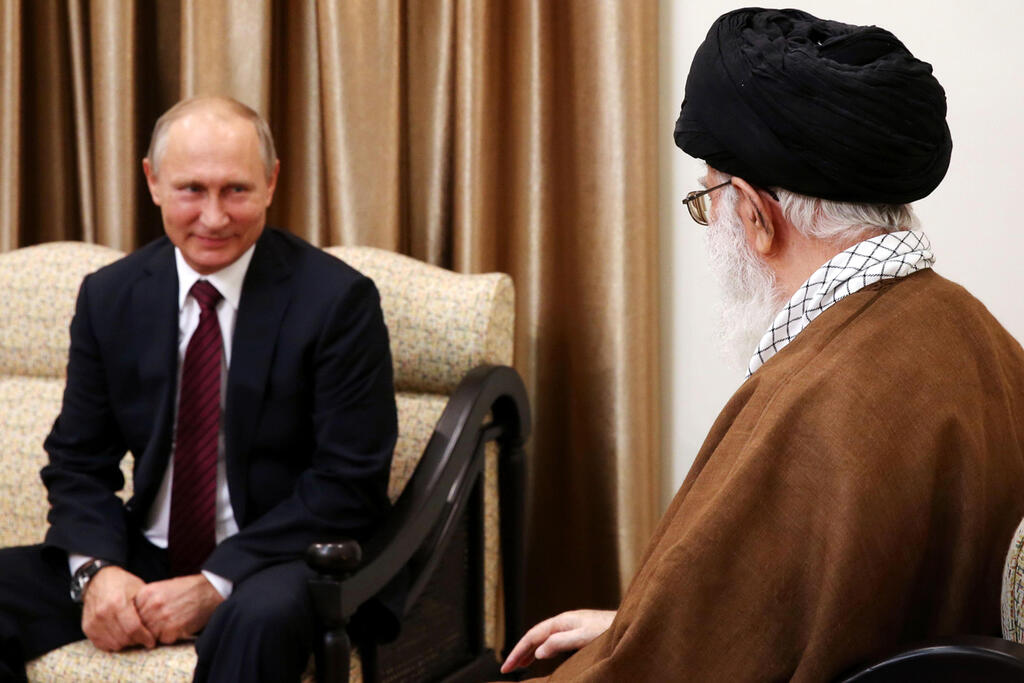
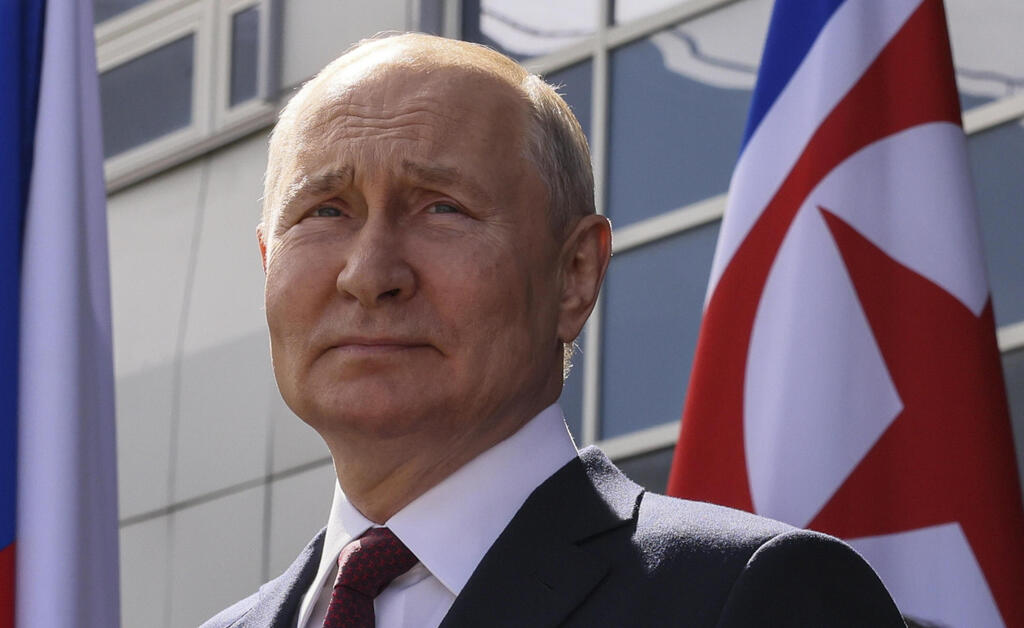
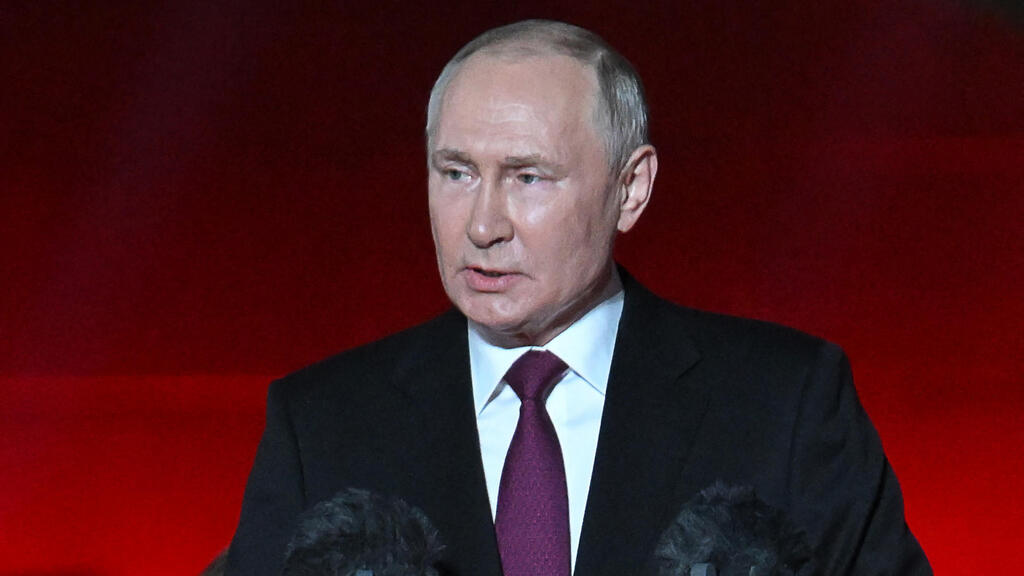
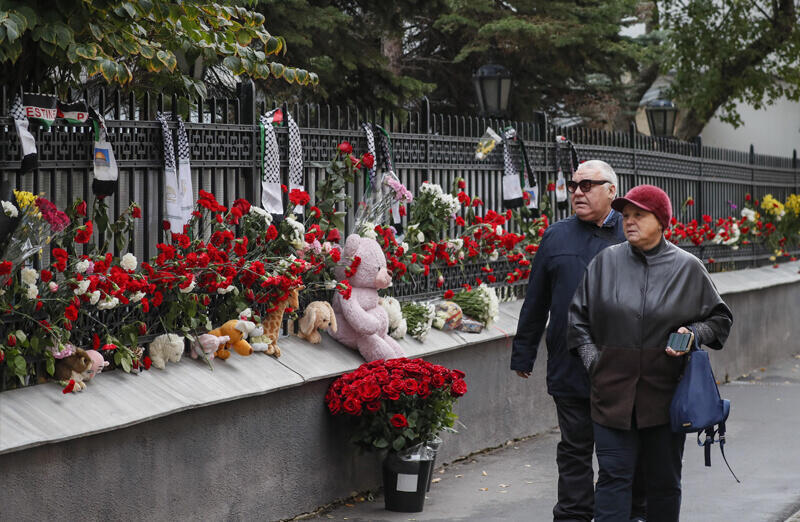
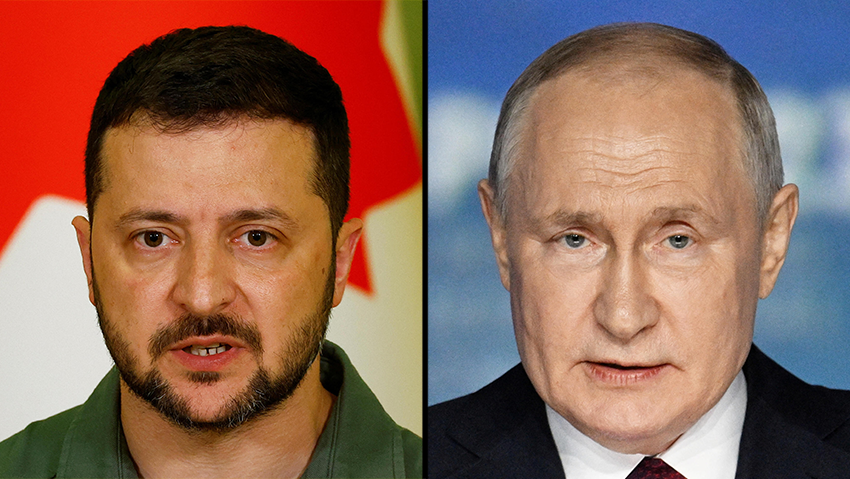


Comments
Post a Comment